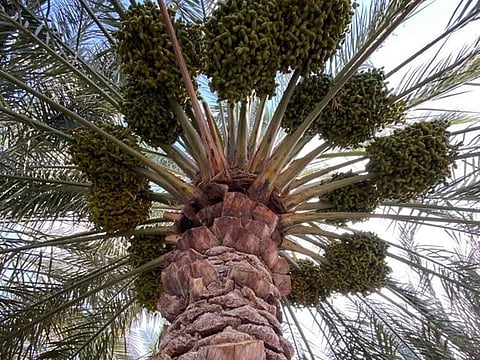UAE, UN body join forces to eradicate red palm weevil in the region
Red palm weevil, an invasive insect, afflicts over 40 palm species, including date palms

Also In This Package
Dubai: UAE has taken an important step in supporting the region’s efforts to eradicate the red palm weevil — a highly destructive pest that blights palm trees — with the recent signing of a funding agreement between the Food and Agriculture Organisation of the United Nations (FAO) and the Ministry of Climate Change and Environment (MOCCAE) and Khalifa Center for Genetic Engineering and Biotechnology (KCGEB) at UAE University.
Through the funding agreement, MOCCAE will provide financial support to the Red Palm Weevil Trust Fund related to the FAO regional programme on red palm weevil eradication and to KCGEB in their efforts to control the transboundary insect and reduce palm tree losses in the Middle East and North Africa.
The final objective is the eradication of the insect from the region, as Mauritania managed to do with technical assistance from FAO.
MOCCAE will channel $1 million (Dh3.67 million) to KCGEB to develop genetic methods to control the red palm weevil. The agreement aims to support the FAO regional trust fund programme with $1 million to support countries to control the spread of and eventually eradicate this transboundary pest and thereby enhance regional efforts aimed at controlling and reducing its devastating effects on the environment, food security and livelihoods.
Using latest technology
Mariam bint Mohammed Almheirhi, Minister of Climate Change and Environment, noted: “The red palm weevil is an invasive transboundary insect, which afflicts more than 40 palm species — including date palms — causing considerable damage in the UAE, Gulf Countries and across the region.”
“The agreement builds on a campaign initiated by MOCCAE in 2019 to leverage the latest technology to eradicate weevil and thereby alleviate the socio-economic threat it poses — especially to rural communities,” she added.
Professor Khaled Amiri, director of KCGEB, said: “We are delighted to have the opportunity to use the expertise of the Khalifa Center for Genetic Engineering and Biotechnology to address a significant issue for the UAE and other countries. The red palm weevil has destroyed large number of palm trees and represents an ongoing threat to livelihood. This funding agreement will support the knowledge-transfer and capacity-building activities for the sustainable management of the red palm weevil in the region.”
Food security
Improving food security in the region will be the main outcome of the agreement, noted Dr Abdulhakim Rajab Elwaer, FAO assistant director general and regional representative for the Near East and North Africa.
He added: “In line with our global mandate to promote food security and agricultural development, we are very happy to be extending our mutual cooperation in this area of pest control. Our partnership aims to control the red palm weevil in areas that are afflicted in the Middle East and North Africa — a significant problem with 90 per cent of the world’s dates being grown in the region. It will enhance efforts at the regional level for supporting the integrated and sustainable management programmes to control the pest, reduce its devastating impact on the environment and food security and alleviate its socio-economic impact on rural communities.”









